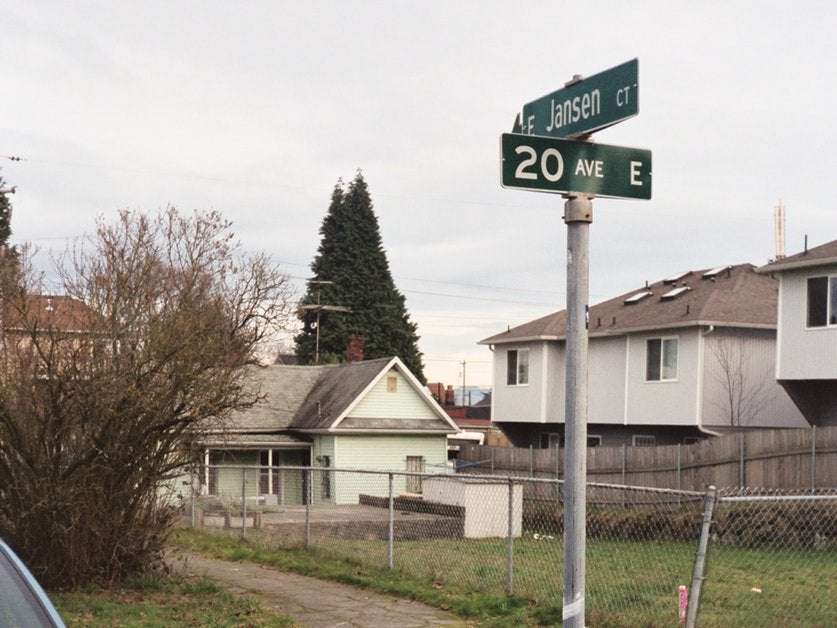She was raped 15 years ago. Her rape kit was finally tested and turned up a match
J.D., age 15, was so embarrassed that she didn’t tell her father on the car ride home that she had just been raped.
Earlier that day, when J.D. was walking to the bus on Capitol Hill, a man approached her. He said his name was James and asked if she wanted to “get high,” and, when she said yes, took her to a shack behind a house, gave her crack to smoke, and then raped her. In 2018, 14 years after the rape, the state crime lab analyzed the evidence she had given to police. The DNA matched Michael Anderson, a man who was already in prison for holding up a Chevron gas station in south Seattle. The rape case is one of seven that have been filed in King County court because of the DNA evidence obtained through testing kits in the state’s backlog. This year, Washington state appropriated millions more dollars toward revamping the state’s crime lab and eliminating the state’s backlog of 10,000 untested rape kits. Yet, forensic testing is just one part of bringing cold cases to justice.
As the example of J.D.’s case shows, survivors can expect to face more delays before they get their day in court, if ever.
On July 8, 2019, Michael Anderson walked into court, flanked by deputies and a public defender. He wore maroon scrubs and orange socks and slippers. He pleaded guilty. Anderson was sentenced to seven years, but could be released in three years, in 2022, because of a plea deal. T he day after J.D., was raped she went to Harborview Medical Center. “I wanted to make sure I didn't get pregnant,” she told a Seattle Police detective in 2018 when her case was reopened. “This was one of the first times I'd ever even had sex, and I didn't know what to expect, what the risks were.”
J.D. also allowed a nurse to collect samples from her body as crime evidence. That day in 2004, J.D. talked to a police officer who met her at the hospital. She made an appointment for an interview with the sexual assault unit a few days later. But she didn’t show up, and didn’t call the detective back. “I didn't want to prosecute or do anything because I was so young and I was so ashamed that I'd use drugs that I thought, you know, I just made this happen,” J.D. told a detective in 2018. A few days later, her case was inactivated. The evidence a nurse swabbed from her body was stored with the police—the same dead end many rape kits reached prior to 2015, as Seattle police did not send kits from inactive cases to the state crime lab for testing. In 2015, lawmakers changed state law and mandated that all kits be tested, regardless of what action a police agency took in the case. J.D.'s kit went to the lab June 2016; the DNA evidence didn’t come back to the police for close to two years, until May 2018.
Lab testing is another point where many kits languish. The crime lab faces a growing backlog of untested evidence from cold cases, but also from new investigations. The state set aside $10 million this year for rape kits. That money will go toward hiring forensic scientists and renovating a lab in Vancouver, Washington, to be more efficient. Washington state currently outsources testing to a lab in Utah, which has helped Washington state advance through testing backlogged rape kits at a rate of around 2,900 over three and a half years. The point of processing a rape kit is to extract the DNA profile and upload it to the FBI’s databases, called the Combined DNA Index System, or CODIS, which contains DNA profiles of people arrested for and/or convicted of crimes. As of July, the state crime lab uploaded DNA from 1,087 rape kits collected before 2015 ... and identified a match for 36 percent of those cases.
When they get a match, the labs send the information to police. In Seattle, Susanna Monroe, a sergeant in the Sexual Assault and Child Abuse Unit, gets the report. As of this summer, she had gotten around 1,200 DNA analysis reports from the state lab. “All those cases have to be reviewed,” Monroe said. Monroe needs at least a half an hour to review technical results, but it can take a couple hours for a complicated case. “If it's a really old case and I have to have my admin go down and find some paper in a box somewhere, that's gonna take a little while,” she said.

HorAshow on October 24th, 2019 at 18:30 UTC »
I did jury duty a few years ago...the case was for a rape in the 80's!
The state got a grant from the Feds to test a whooooooole bunch of rape kits, so there was a spike in prosecutions.
The suspect was currently incarcerated for - you guessed it - rape. He was due to be released within a matter of weeks. As it stands now, he won't be released until he's old enough that his medical care will cost the state enough to give him 'compassionate' release in a few more decades.
After the case the jury was invited to meet the prosecutor, who informed us that if we didn't find the perp guilty, he had 4 other matches on kits (all from the 80's) to try again.
Strom41 on October 24th, 2019 at 14:44 UTC »
Once the kit was received at the lab, still took 2 years to get the results due to the heavy backlog. The results determined it was a man who was already in jail for robbing a gas station. Justice delayed but eventually served.
Tandian on October 24th, 2019 at 14:39 UTC »
God damn it took 15 years to get the kit tested?